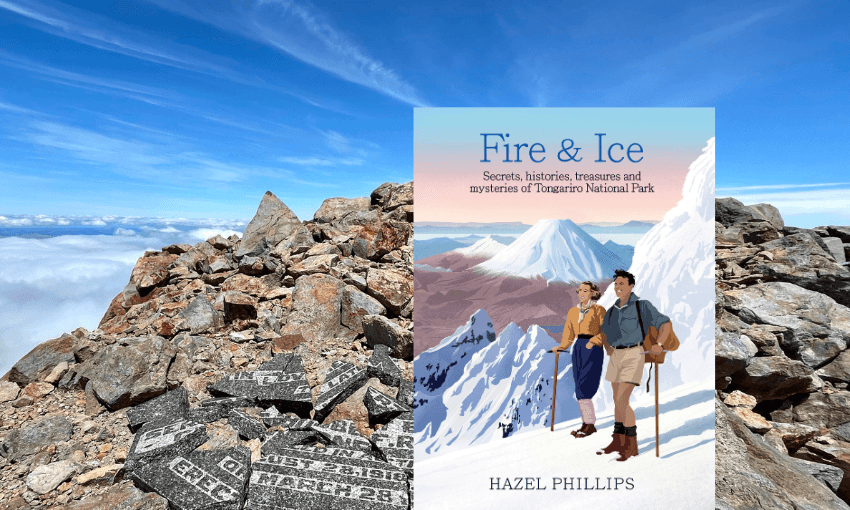Books editor and former festival organiser Claire Mabey offers advice on what to do – and perhaps more importantly, what not do to – at audience question time.
Approximately 50 minutes into a session at the writers festival, you might start to feel a little tense. Out of the corner of your eye you’ve spied volunteers circling the room with microphones in their hands. Or perhaps a mic on a stand has silently appeared in the aisle just along from where you’re sitting. Questions are tumbling inside your head like clothes in a dryer: Will whoever stands up ask an actual question? Or are they going to start with “this is more of a comment than a question, really”? Will they start on about Sartre or Lacan or some other obscure old fella in a manner wholly unconnected with the conversation we’ve all just heard?
All of this anxiety overshadows the genuine queries: the ones that probably heaps of people in the audience also have, but are too afraid to ask. But you know the gentleman who wants to talk about Lacan won’t be shy. Far from it.
Audience question time at a writers festival can be fraught, it can get ugly and it can get weird: a seemingly eternal 10 minutes of angst and hope and crushing disappointment. So, with the intention of alleviating stress and bolstering confidence, I’ve rounded up advice – from seasoned festival attendees, interviewers and festival organisers – on how to ask a great and useful audience question.
1. It’s one question
Not “a couple of questions”. And under no circumstances is it both “a statement and a question”.
2. Relate your question to what has actually been said on stage
It sounds basic and it is. But this number one rule is often eschewed for an obscure thought that may have been lingering in the back of the speaker’s head since high school. Just, like, listen. Or if you think the chair has missed a trick by not raising a topic…
3. Channel your inner child – don’t overthink it
Children are the best at asking questions. They’re direct, they’re curious, they’re fearless. Be like a kid: find the essence of your query and voice it, directly (and succinctly).
4. Remember, chances are that a lot of others in the audience are wondering the same thing you are
Keeping this in mind can take the pressure off and calm the nerves if you consider that you’re taking one for the team. Public speaking can be terrifying but in this case it’s not about you, it’s about the person/people on the stage and the insights they are offering. You’re a conduit for curiosity: use it wisely.
5. Don’t preamble
It’s very tempting to give context: context is key, context is great. But, for the purposes of audience question time it’s best to just launch straight into the question. You have to assume that everyone has been listening and is in the room because they’re interested in what’s been happening on stage. So you can safely proceed with the crux of the matter.
6. If you’re ‘not the sort of person who asks questions at writers’ festivals’, please ask a question
It’s not about you, it’s about the good of humankind. If you’re naturally shy of the mic but you are a listener and you’re curious and you have a question then please for the love of books, step up.
7. Is this something the author has probably answered, multiple times, in multiple venues?
Or in other words, refrain from asking Margaret Atwood if she sees any real-life parallels between The Handmaid’s Tale and events of today’s world, etc.
8. Don’t be afraid of an open question!
A surprising number of yes/no questions get asked. Perhaps due to nerves; or the questioner is asking something that they already know the answer to. And yet the questions that proffer the most fruitful answers are the ones that allow a free-form response. Go wild.
9. If your question includes more than (a) four punctuation marks or (b) two breaths, it is too long
Simply, make it neat. Everyone around you will be nauseous with anxiety that you’re going to take up all the time. It’s also just much easier for the speaker to answer a concise question than it is to tackle a multi-paranthetical one.
10. Would you ask this question in front of your employer?
No, really, would you? Is there a risk that you may come across as mildly unhinged? Or thinking about last night’s episode of Succession during the team WIP? If that’s the vibe then please refrain.
11. The book signing is your opportunity to have that deep & meaningful
Look, many authors do really love it when a reader connects personally with their work. Of course they do. The time to share your personal story is not at question time but at the book signing table when you’re standing in front of them as they lovingly write your name onto the title page. While you need to keep in mind that there will be people behind you willing you to get a move on, it’s here where you can have your one-on-one moment.
12. If you asked a question at the previous two sessions you attended, you are prohibited from piping up at the next
Give someone else a turn. Please.
There we have it, reader. Go well. Go with empathy, with confidence and for the love of books.
Auckland Writers Festival runs until Sunday, 21 May.



